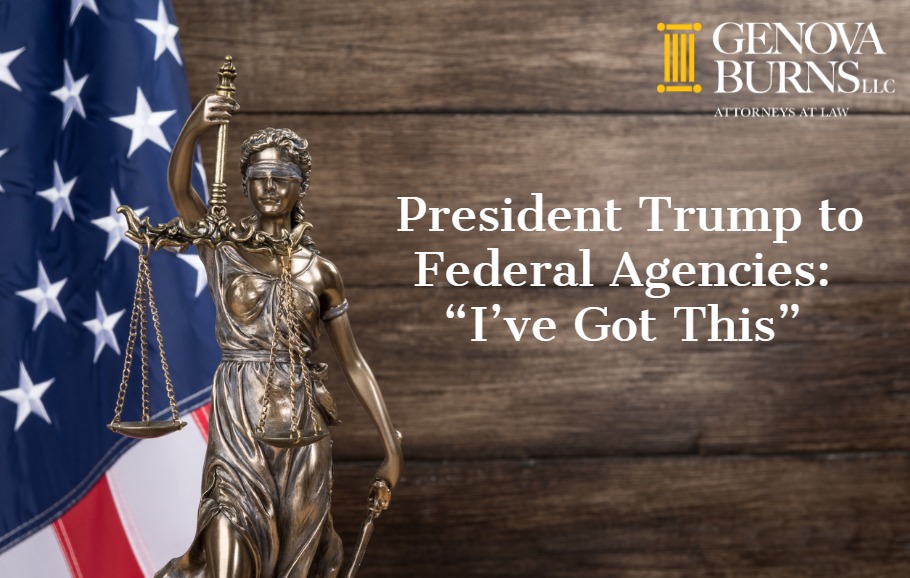President Trump to Federal Agencies: “I’ve Got This”
February 25, 2025 | By: Edward J. Bonett, Jr., Esq.
President Trump’s February 18th Executive Order entitled, “Ensuring Accountability for All Agencies,” represents a sweeping effort to consolidate federal executive branch lawmaking power with the President. The Order’s purpose is to “ensure Presidential supervision and control of the entire executive branch.” Such control is inherent with cabinet-level agencies, but this Order would extend control explicitly to Independent Regulatory Agencies established by Congress. The list of agencies includes: the Consumer Product Safety Commission, the Federal Communications Commission, the Federal Trade Commission, the Nuclear Regulatory Commission, the Securities and Exchange Commission, and the National Labor Relations Board, to name a few. Agencies that ignore the directive to involve the White House in rulemaking could risk losing appropriations for certain activities.
As far as the implications of this Order for the NLRB, the Order directs that all proposed and final regulatory actions be submitted to the Office of Information and Regulatory Affairs (OIRA) within the Executive Office of the President before publication. Current rulemaking typically involves an agency proposing a rule, publishing it for public comments in the Federal Register, addressing those comments, and then publishing a final rule. The NLRB primarily regulates labor law on a case-by-case adjudicatory basis, but it can and does use its rulemaking power for major issues like modifying the union election and voluntary recognition processes and defining joint employer status. The new Order would require the Board to submit proposed rules to the President via the OIRA. Presumably, the President would then put his stamp or veto on the proposed rules.
Another provision of the Executive Order provides that the President and the Attorney General subject to the President’s control shall be the authoritative interpreter of the law. This clause, as applied to the NLRB, suggests that more than just rulemaking will be channeled through the President. Currently, the NLRB’s Division of Advice gives nationwide interpretation and litigation guidance on novel labor law issues based on fact scenarios, without consulting with the President or the Attorney General. In this new procedure, where matters such as “positions advanced in litigation” must go through the President, there would be another layer of review before the NLRB issues nationwide labor advice. How this process will play out is yet to be determined. The Order will likely face legal challenge so watch this space for further updates and reach out to any attorneys in our Labor practice for informed guidance on navigating these changes.
Should you have any questions, please contact Partner Edward J. Bonett, Jr., Esq. at 908.546.6991 or via email here, Partner Patrick W. McGovern, Esq. at 973.535.7129 or via email here, or any Partner in our firm’s Labor Law Practice Group.


